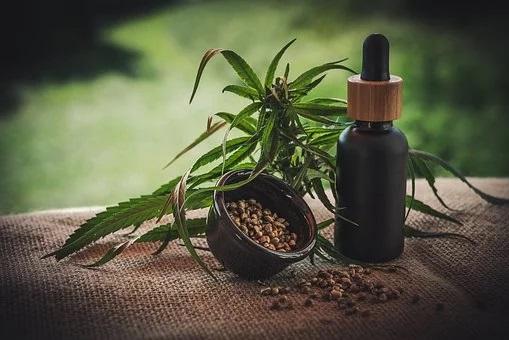How CBD Companies Are Preparing for the Future of Compliance
Following the signing of the 2018 US Farm Bill, the cannabis industry took an exciting shift for the best. Hemp-derived cannabis products such as CBD (cannabidiol) have become mainstream topics in health and wellness platforms and forums. They are favorite trendy ingredients among athletes, artists, icons and fitness enthusiasts. The first FDA also approved cannabis-based medication, Epidiolex, which is a reliable indication for the potential therapeutic benefits of the controversial flowering herb.

Epidiolex is for seizures. However, various studies cite that CBD can aid in treating a myriad of medical conditions. As such, manufacturers populate the cannabis market with all sorts of cannabis products. This includes dry herb and flowers to CBD and THC (tetrahydrocannabinol) isolates, waxes, infused meals and drinks, topical balms, oils and tinctures and edibles, among others. Amid all these changes and opportunities loom, strict regulations are required to guarantee sustainability and safety.
Cannabis industry and regulations
The legal cannabis industry is still young and some places are still reviewing their legislature before they legalize various forms of cannabis products. Rules and standards aren’t robust and uniform in the cannabis industry like they are in others like the food processing and vaccine industries. Experts and pundits predict regulations and compliance to come soon, especially since cannabis is growing into a multi-billion dollar industry with millions of users across the globe.
As a company in the cannabis industry, staying ahead of compliance should be a top priority. Regulations can significantly impact your profitability, operations, or entire investment. Some believe the lack of control is partly why the industry is yet to meet its full potential as investors aren’t sure of the future. However, regulations are inevitable, so companies are keen to prepare and streamline their operations in readiness for compliance requirements. Even better, there are various things you can do to set the bar higher for acceptable standards. Here are a few insights to help you prepare for future compliance in the cannabis industry:
1. Growing, extraction and processing standards
There are no clear regulations that govern the growth, extraction and processing of CBD and other cannabis-derived products. However, proactive manufacturers set their standards. This takes into account different measures in similar industries. Many cannabis companies comply with FSMA that requires retailers to trace the product from the fields of cultivation to the extraction and processing phases. Concerning processing, cannabis companies should at least follow the ISO-6 clean rooms required for medical supplement processing companies. Since cannabis products are medicinal, their handling should be nothing less than conventional standards for other drugs.Nowadays, one can easily find well extracted Cbd oil from various reputed retailers.They make sure that each Cannabis derived product posses high quality extraction standards as per the benchmark.
2. Packaging and marketing regulations
Cannabis products, even in places where they are legal, should remain in airtight child-proof containers. Companies have some guidelines about legal and regulatory issues concerning packaging and marketing. The best approach is to stick with valid information. Currently, medical cannabis products are available for reducing seizures, chronic pain relief and anxiety. There are several other areas, but having CBD in a nail polish or sleeping facemask does not merit all the claims some retailers have for their products. As a company in the cannabis industry, it is crucial to avoid false claims, primarily if you produce cannabis products.
3. Supply line control
The supply line is essential if you retail cannabis products or use ingredients that are grown elsewhere. According to experts, the source of cannabis is crucial as it determines whether the product qualifies as organic or not. Tracing the supply line back to the fields is possible by complying with ISO-9001 regulations. They ensure you have full documentation of the plant’s lifespan from planting to extraction. While stringent, these regulations are essential for filtering companies that cannot guarantee the quality of the products they sell or promote. Together with ISO 6 clean processing rooms, these standards are necessary for ensuring companies produce high-quality products and ingredients.
4. Learning from other places
Cannabis regulations vary from place to place. In the US alone, federal laws may say something different from state laws. Nonetheless, everyone can see the direction cannabis discussions are leaning on nowadays. More like online gambling, when pioneer states take a bold step forward, others quickly follow suit. Both medical and recreational cannabis is legal in Canada, for instance, you can easily find Ontario weed online retailers that ship mail-ordered cannabis products. More places also continue to amend laws and most legislatures revere precedents. For example, California became the first state to make medical marijuana legal and now it is permissible in 33 more states and the District of Columbia. By looking at how things are shaping up in other regions, you can anticipate future compliance requirements.
5. Investing in innovation

The goal of compliance in food and medical products is to ensure consistent, safe quality products that are useful to consumers. As such, it is crucial to invest in both technology and innovations that can help you achieve this. This includes streamlining your extraction, processing and testing procedures to yield clean, top-quality cannabis products. When the regulations come, they will not be very different from other compliances in the food and medical supplement industries. After all, cannabis products like CBD are available for medicinal purposes and are, by default, under compliances in the food and medicine industry. You can also invest in research and lab studies to spearhead the thirst for ultimate quality, safe cannabis products.
Conclusion
There are several other minor preparations a company can make in readiness for future compliance. The goal is to ensure you meet minimum requirements and abide by the rules in your country, however scanty. Compliance covers a broad scope of topics including accreditation, acceptable products and amounts, indication and labeling, storage, extraction and processing, shipping and liabilities, among others. Adhering to standards in other similar industries is one way to approach compliance. Investing in measures that meet current safety and quality regulations will make new rules less daunting to implement. It is also recommendable to track emerging regulations and developments in the industry, mainly to do with legislature and policy. Meanwhile, your priority as a company should entail providing the best quality cannabis products and services you can achieve.















